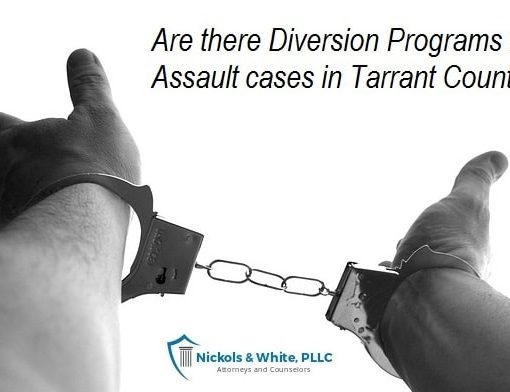
WHAT IS A 3G OFFENSE IN TEXAS?
Hearing that you have been charged with a 3G offense can be both confusing and scary. However, knowing what a 3G offense is, the implications of being convicted of a 3G offense, and how to move forward can be important to determine your plan of attack and whether you will be eligible for probation or parole. The Board-Certified Fort Worth criminal defense attorneys at Nickols & White, PLLC, can use their experience and expertise to help you navigate your 3G felony charge.
What is a “3G” Offense?
In Texas, there are two categories of felonies: 3G offenses and others. “3G” offenses are a special category of offenses that have specific sentencing rules that control how those offenses can be handled by the court. 3G offenses are generally more serious or violent than other felonies and often include aggravating circumstances. 3G offenses are listed in the Texas Code of Criminal Procedure in Article 42A.054 and include:
- Murder (Penal Code 19.02)
- Capital Murder (Penal Code 19.03)
- Indecency with a child (Penal Code 21.11(a)(1))
- Aggravated Kidnapping— kidnapping someone with the intent to hold him or her for ransom or as a hostage, or with the intent to sexually or physically abuse him or her. (Penal Code 20.04)
- Trafficking of a Person (Penal Code 20A.02)
- Aggravated Sexual Assault (Penal Code 22.021)
- Sexual Assault (Penal Code 22.011)
- Aggravated Robbery (Penal Code 29.03)
- Burglary of a habitation with the intent to commit, attempted to commit, or committed another felony other than theft. (Penal Code 30.02 (d))
- First Degree Injury to a Child (Penal Code 22.04(a)(1))
- Sexual Performance by a Child (Penal Code 43.25)
- Compelling Prostitution (Penal Code 43.05)
- Use of a Child in Commission of an Offense (Health and Safety Code 481.140)
- Drug offenses committed within 1,000 feet of a school, youth center, or playground or on a school bus when the defendant has previously been convicted of a similar offense. (Health and Safety Code 481.134(c), (d), (e), or (f))
- Any felony where a deadly weapon is used or exhibited during the commission of the crime or during the flight from the crime. (Penal Code 1.07)
TIP: A deadly weapon is a firearm or anything manifestly designed, made, or adapted for the purpose of inflicting death or serious bodily injury; or anything that in the manner of its use or intended use is capable of causing death or serious bodily injury. Therefore, a deadly weapon could be a pair of scissors, a gun that does not fire, a car, a knife, hammer, brass knuckles, etc.
What About Probation?
If the defendant is charged with a 3G offense, the court cannot accept a plea bargain for straight probation. But, the judge can accept a plea bargain for deferred adjudication as long as the underlying sentence is less than 10 years.
TIP: Straight probation is different from deferred adjudication. With straight probation, the defendant will plead guilty and the court will find the defendant guilty prior to the conditions of probation beginning. However, with deferred adjudication the defendant will plead guilty, but the judge will delay finding the defendant guilty. As long as the defendant does not violate any of the conditions of deferred adjudication, the court will dismiss the case. But, if the defendant does violate any of the conditions the court will find the defendant guilty and sentence the defendant according to the conditions of the deferred adjudication.
Further, if the defendant chooses to have a trial by the judge instead of by a jury, and is found guilty, the court cannot sentence the defendant to probation. However, if the defendant chooses to have a jury trial and is found guilty, the jury can grant probation.
Therefore, probation is possible with a 3G offense, but only in certain situations.
Do 3G Convictions Affect Parole?
Yes. If the defendant is found guilty of a 3G offense and sentenced to prison, the defendant will not be parole eligible until his or her time served equals 30 years or one-half of the sentence. Further, if the sentence was less than four years, the defendant will not be eligible for parole until time served equals two years.
This means that if the defendant is found guilty of a 3G offense and is sentenced to 3 years in prison, the defendant will not be eligible for parole until at least 2 years have passed. Or if the defendant has been sentenced to 70 years in prison, the defendant will be eligible for parole after he or she has served 30 years.
Consult an Attorney
If you have been charged with a 3G offense, it is important to consult an attorney right away. The attorneys at the Nickols & White, PLLC, have the experience to guide you through your case and protect your rights.




